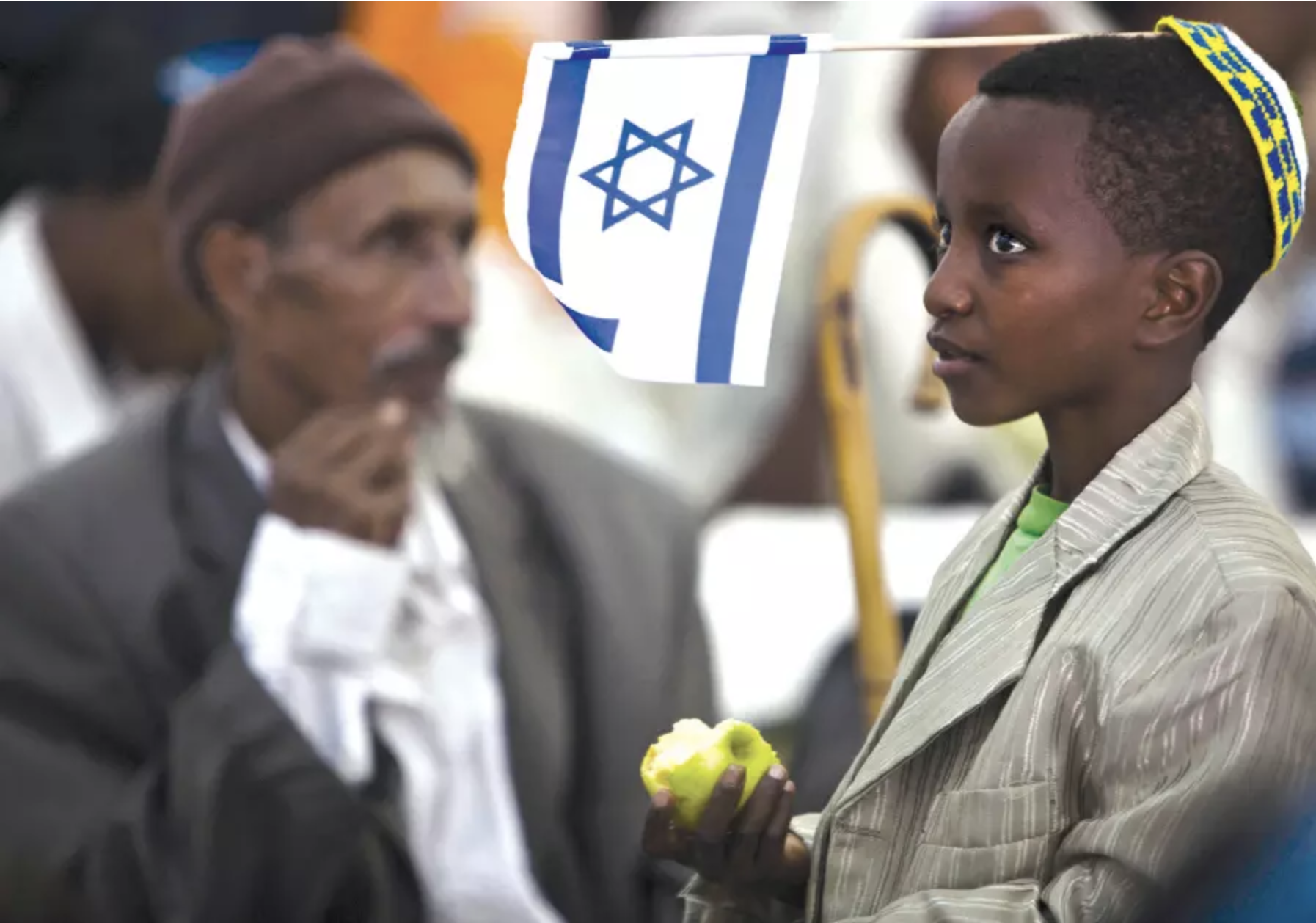Jpost | Rabbi Yosef Hadane, the former chief rabbi of the 125,000-strong Ethiopian Jewish community in Israel, has called on the government to make a final decision regarding the immigration of the remaining Falash Mura in Ethiopia and bring the saga to an end.
Eighty immigrants from Ethiopia are landing at Ben-Gurion Airport on Monday, the first of 1,000 Falash Mura who were approved by the government for immigration last year.
Some 7,000 members of the community will remain in Addis Ababa and Gondar however, and activists have strongly criticized the government for failing to process their requests for immigration.
The government resolved in 2015 to bring all remaining members of the community to Israel. But implementation had been delayed for several reasons, including political opposition in Israel.
The Falash Mura do not have the right to citizenship under the Law of Return since their ancestors converted, under duress, to Christianity. Instead they are granted citizenship under the Law of Entry at the discretion of the Interior Minister, mostly for family reunification principles.
They are required to convert to Judaism upon entry into Israel.
During the waves of Beta Israel immigration from Ethiopia, some families were split since some family members were authorized for entry to Israel while others were denied.
 “The Jewish world has an important job to lend a hand and help so that the state will bring them here and help absorb them. This is a national responsibly for all Jews since all Jews are responsible for each other,” he said citing a famous Talmudic dictum (Sota 37).
“The Jewish world has an important job to lend a hand and help so that the state will bring them here and help absorb them. This is a national responsibly for all Jews since all Jews are responsible for each other,” he said citing a famous Talmudic dictum (Sota 37).Hadane said he was appreciative of the efforts of North American Jewry in the past in helping bring immigrants from Ethiopia to Israel, but said that “The work has not been finished.”“We need to reunite those who are left are those who [with their families and relations] of the first degree, parents and children.”
The rabbi said that after the government makes a final decision regarding all outstanding claims, the community centers should be shut bringing mass immigration from Ethiopia to an end. At that point, anyone applying to immigrate to Israel would have to do so in the usual channels for other aspiring immigrants, he said.
Significant opposition has developed to further immigration of the Falash Mura from the conservative wing of the national-religious community. As well, elements in the Beta Israel Ethiopian Jewish community claim the remaining members of the community are not descendants of Jews on their maternal side, as were previous Falash Mura immigrants in the 1990s and 2000s. Thus further immigration would lead to a continuous cycle of family reunification claims from Ethiopians who are neither Jewish nor connected to the Falash Mura community.
Hadane was cautious in his response to such claims, saying repeatedly that immigration claims should be evaluated properly by the Interior Ministry, and those found to fulfil the criteria for immigration be approved.
Additionally, the rabbi emphasized the “humanitarian” aspect of their immigration requests, noting that many hundreds of parents and children had been separated in the course of mass Ethiopian immigration.
He also rejected claims that there would be future cycles of immigration, repeating that after the remainder of the community is brought to Israel, the community centers should be shut down and mass immigration terminated.
Hadane also addressed claims that since the immigration of those remaining in Ethiopia is dependent on conversion, such conversions are not valid according to Jewish law which requires converts undergo the process without extraneous motives.
The rabbi said that once the Jewish Beta Israel community began their immigration process, the Falash Mura abandoned relative wealth in their native villages where they raised cattle and sheep to join them, and that they had always only sought to realize their ancestral dream of reaching the Land of Israel.
“These people did not lack anything. They had fields, cattle, sheep. They had everything. They left the villages and went to the camps to come to Israel. They left everything behind to come to Israel,” he emphasized.
“They just wanted to realize the dreams of their ancestors and come to Land of Israel. We had always talked about this, that this was our home and our place, in the Land of Israel. We spoke of this with pride, we prayed for it, and said in every place at every opportunity, our land is the Land of Israel, Jerusalem.”

























